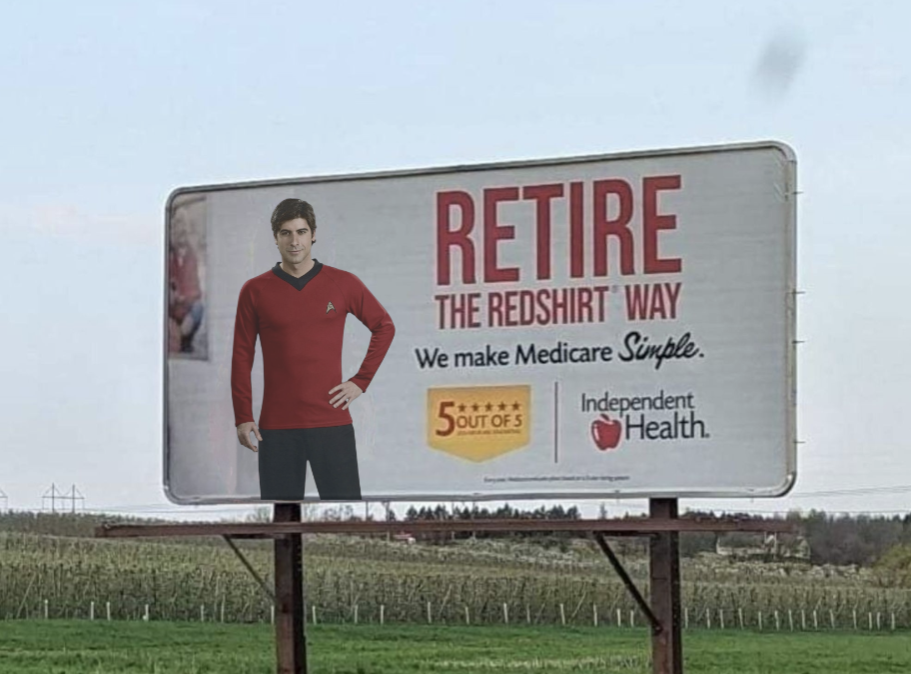


Also [email protected]





This is why I love TNG so much. Even though TOS is the original that laid the groundwork for everything, TNG took that “boundless optimism” and ran with it. Watching TNG inspires me to continue to self-improve and encourage it in others.


Yeah, there’s a singular implied “universal morality” throughout Star Trek of accepting diversity and learning to not impose on other civilizations or each other on the basis of one’s biological differences or culture, even for Klingons! I’d say the rest is hard to define and subjective, as @[email protected] said above, but post-scarcity and free agency in life to follow your passions has to be pretty close!


That’s a good point. I think this contrast between individual (often flawed) human judgment vs collectivist ideals has always been a theme. In TOS, you see Kirk calming McCoy’s knee-jerk reactions almost every episode. In TNG, it was Yar or Worf. In DS9, probably Kira.
Even then, I would say the collectivist ideals (i.e. Starfleet regulations) were more often portrayed as overly-cumbersome in implementation, which leads to someone like Kirk violating the rules in place of the ideals that they stand for. For example, how many naïve (but well-meaning) diplomats do we see in TOS or TNG? However, rules being restrictive or imperfect in an effort to support larger agreed-upon morals can still be trusted, compared to corrupt power structures, which cannot.


Ah damn, sorry about the paywall. It let me hit “continue reading” on mobile, but I know sometimes these types of sites can be inconsistent.


It’s just another tired bit about how following orders and perfect institutions are what Star Trek is really about, to hell with any evidence to the contrary.
I’d argue that the theme is less about following orders and more We are all individually flawed and are at our best when we follow our shared values - which is represented by both Starfleet and the utopian setting as a whole.
I can see the argument (for fiction and real life), that as we trust institutions less, our focus becomes more on individual judgement rather than collectivist ideas. It also tracks for me that as this occurs in real life, our media would reflect individualism more and more.


I’ve admittedly still only watched up through the 90s, but I’d definitely say that DS9 depicted a significantly more “morally gray” version of Starfleet than TOS or TNG.
I think the point the author is making is that the extent to which this idea gets explored is reflective of our society’s growing mistrust of institutions IRL, rather than suggesting the theme has never been explored.


I hope you enjoy it! Maybe by the time you finish TNG, you’ll have switched “sides”!


On my very first watch of TNG, I was so annoyed the first couple of times I saw Lwaxana or Q dominate an episode, but by the end of the series I was cheering every time they showed up!


Black mirror is a lot like a modern Twilight Zone, which early Star Trek was significantly influenced by, and now a fan who directed an episode inspired by Trek gets to do actual Trek?
I can feel my hopes getting up.


I’ve somehow forgotten that there was a Magic School Bus episode of DS9?!


They’re… glorious
This is fantastic. Quark is also surprisingly calm about how much latinum he made.


My searches for the other gifs I linked led me to a gold mine of these KirkFu moves that someone posted to imgur.
They called this one “Wall of Destruction”

And here are the rest just because:






It looks a lot like stage fighting. Something that would still be clear to viewers sitting really far away (or I guess with tiny, blurry 1960s TVs in this case).


Kirk, Chekov, and Uhura were being held prisoner and forced to fight as thralls, so Kirk seduced lady gaga to steal the key and try to escape.
Usually, but I love the optimistic fanfare of the TNG intro, and it has a habit of drawing me in.